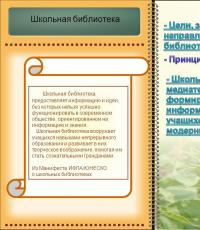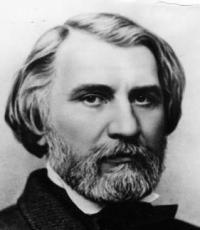According to Bondarev's text, I woke up late at night from a frantic run (USE in Russian). According to the text Yu
Essays-reasoning on the text of Y. Bondarev "Instant".
Don't let life slip between your fingers
I.S. Turgenev.
The outstanding Russian Soviet writer Yuri Vasilievich Bondarev in his text tells about an important, in my opinion, problem. This problem has always worried people. Reading the text makes each of us think about this question.
Yu.V. Bondarev,reflecting on the problem of the transience of life, he tells that the highest power predetermined the life of the Earth, and therefore the death of a person is inevitable, and life is so lightning fast: “If the longevity of the Earth is only a moment of a microscopic grain of world energy, then a person’s life is a moment of the shortest moment.” Authorseeks to convey to the reader the idea thata person should live his life with dignity in the transience of time.
The writer emphasizes thatnot every person is given to know the meaning of his own life, but people do not want to put up with the fact that they are only part of the Earth.In the text, the author believes that “a person does not want to agree that he is only a tiny grain, a speck of the Earth, invisible from cosmic heights, and, without knowing himself, he is impudently sure that he can comprehend the secrets, the laws of the universe and, of course, subdue them daily use."Without knowing himself, a person is naively convinced that he is capable of learning all the secrets of the universe, that he is immortal.
Yu.V. Bondarev convinces us thata person cannot reconcile himself to the transience of life, and in a naive belief in his own immortality lies the force that drives a person. It is difficult to disagree with the author of this text.I fully share the position of the writer and I think thatlife itself is fleeting, and a person must live a decent life.
The problem under discussion is so important in a person's life that many writers raised it in their works. In particular, I.A. Bunin in the story "The Gentleman from San Francisco". The American millionaire never thought about the transience of life, naively believed in his own immortality and spent all his strength on gaining financial independence. It turned out that the accumulated capital has no meaning before the eternal law. Human life is absolutely insignificant in comparison with the world, and man himself is helpless and weak. The image drawn in the work modern world makes the reader think about the meaning of life itself.
K.G. talks about the transience of life.Paustovsky in the story "Ilyinsky pool". The author emphasizes how incredibly quickly life flies by: “Indeed, before you have time to come to your senses, youth is already fading and eyes are dimming.” The writer draws attention to the fact that people do not try to save time, as if a lost life can be easily restored. He convinces us that our life is very fleeting, and a person should be careful with time.
Thus,Yuri Vasilievich Bondarev tells about a problem that is important for each of us. I am grateful to the author for encouraging me to rethink the problemtransience of human life. I believe that we, the younger generation, should do everything to live a decent and active life in accordance with certain ideals and beliefs, without wasting time on useless activities.
(1) I woke up late at night from frantic running, the roar of wheels, from the creak of the shelves, from the rattling of the half-open compartment door - piercing drafts went overhead.
(2) It was dark in the corridor and the compartment: I lay for a long time with my eyes open, guessing in the darkness the black square of the window, behind which everything was impenetrable, dull at night, and it was impossible to understand whether the steppe or the forests were walking in this endless, secret, incomprehensible, like darkness, the universe.
(3) Then, in the windowless abyss of the sky, a transcendental fire flared up, a blue lone star flickered.


The writing
Often, throwing a cigarette butt on the pavement, refueling your car with gasoline, throwing batteries into a waste bag, we don’t even think about what this can lead to later. More than 7 billion people are guided by the logic “one time will not do anything”, but is it really that simple? Yu.V. Bondarev.
The author's reasoning rests on the idea of the helplessness of our planet on the scale of the universe. The hero of the text notes that, in his view, the Earth is “a settled cozy island in a boundless threatening ocean of uncertainty”, and people on it are essentially guests, and they behave like full-fledged owners, “shaking the ship from side to side”. The lyrical hero leads the reader to the idea that, contrary to all opinions, our planet is a fragile organism, “with its own rhythm, breathing, blood circulation pulse”, as vulnerable as, for example, a child in need of support and understanding.
It is impossible not to understand the position of Yu.V. Bondareva: he believes that man is responsible for the preservation of life on his native planet. The earth is a tiny and vulnerable organism with a limited supply of food and food, and it cannot and should not be used by man for pleasure and convenience.
Of course, the writer is completely right. I also think that people's opinion that the Earth is a self-healing ball with infinite resources is an incredibly stupid and dystopian judgment. Each of us is responsible for our own actions and for life on the planet as a whole. In our century, there are many projects that advocate the preservation of the environment on Earth, but, unfortunately, they already have a saving character. And if everyone continues to mindlessly use the resources given to him, the death of all life on Earth will approach even faster than we think.
Few people think that nature does not tolerate violence against itself, and no matter how helpless it may look under the onslaught of atomic bombs and tanks, it will definitely take revenge on those who imagine themselves to be the master of all life on earth. So, for example, in the story of V.P. Astafyev's "King-Fish", the author describes Ignatich's consumer attitude to the resources that were given to him: he was engaged in poaching until the last, until one day he met with the "King-Fish", who managed to point out to the hero his mortality in time. In the face of impending death, the hero of the story recalls his entire life, the stages of his own fall into sin - and comes to repentance. Ignatich suddenly realized how destructive his activity was for all life on earth, and realized that he had the right only to help nature, but not to use it for his own purposes, especially so thoughtlessly.
V.G. Rasputin argued: “To speak today about ecology means to speak not about changing life, but about saving it.” In his story "Farewell to Matera" the author reveals another example of a consumer attitude to nature. A group of people who have decided to build a power plant on the river are taking eerily disastrous measures. The circle of their actions includes the flooding of the entire island, with all the property, flora and fauna acquired by people. And here the author touches not only on the problem of attachment to a small homeland, because the fact that the indigenous inhabitants of Matera are resettled to a completely foreign land is not so bad. The biggest problem is how destructive in every way is the activity modern man in relation to nature. Fields with abundant crops, animals, birds and plants - all this was to be destroyed for an empty purpose, and where an entire island is flooded, the entire planet can be destroyed there, with the same "large-scale" purpose.
Nature and man should closely interact and help each other, be friends, but not enemies. And the advent of the age of "high technology", the age of space exploration should only help people invent new ways of being on Earth harmlessly, but so far, unfortunately, only a few are thinking about this.
Sometimes I try to remember the first touches of the world, to remember with the hope that it can return me to the naive time of surprise, delight and first love, to return what later, as a mature person, I never experienced so purely and piercingly. From what age do I remember myself? And where was it? In the Urals, in the Orenburg steppe? When I asked my father and mother about this, they could not accurately recall the details of my early childhood. One way or another, many years later, I realized that a moment of sparkling mood caught and, as it were, stopped by consciousness is a miraculous contact of a moment of the past with the present, lost with the eternal, childish with adult, just as golden dreams unite with reality.
However, perhaps the first sensations are the impulse of the blood of my ancestors in me, my great-great-grandfathers, the voice of the blood that brought me back hundreds of years ago, at the time of some kind of migration, when a wild, robber wind rushed over the steppes at night, whipping the grasses under the blue moonlight. light, and the creak of many carts on dusty roads was mixed with the primitive rattle of grasshoppers, which populated the many-miles-long spaces with an accompanying ringing, burned out by the evil sun during the day to the prickly astringency of the air smelling of horses ... But the first thing I remember is the high bank of the river, where we stopped after a night moving.
I am sitting in the grass, wrapped in a sheepskin coat, sitting among my brothers and sisters huddled in a tight bunch, and next to me, also wrapped in a carpet, sits some kind of grandmother, meek, comfortable, homely. She leaned towards us, warming us with her body and protecting us from the dawn breeze, and we all look, as if enchanted, at the crimson ball of the sun rising from the grass on the other side, so incredibly close, sparkling in the eyes with splashes of rays, that we are all in a hidden ritual delightedly we merge with all this on the bank of a nameless steppe river. As in a movie or in a dream, I see a high hillock, and we are on that hillock, tilted from left to right, our tight bunch, wrapped in sheepskin coats, and a grandmother or great-grandmother towering above us - I see a face under a village scarf; it gives birth to children's security and devoted love for her and for all the charm of the steppe morning that opened on the river bank, inseparable from the native face of a grandmother or great-grandmother that I never met later, imagined by me ... rising from the grass of the sun, met by us in this long journey somewhere. Where? It is doubly strange: I remember the time of moving and approaching an unseen and unknown land, where everything should be joy. And rises from the corners of my memory wooden house not far from the crossing over a wide river, beyond which a vaguely outlined city, with churches and gardens, emerges, an unfamiliar big city. I do not see myself - whether I am in the house or near the house. I can only imagine the rubble, the road trampled by hooves - from the house to the river - and the proximity that still bothers me. But why does this live in me, a city man? All the same shocks of the blood of the steppe ancestors?
As an adult, I once asked my mother when was that day, that rain, and the crossing, and the city beyond the river; She replied that I was not in the world then. Or rather, she did not remember that day, just as the father did not remember one night that remained in my memory. I was lying on a cart in such fragrant hay that my head was spinning and the starry sky circled above me together, so terrifyingly huge, as happens in the night steppe, and constellations secretly rearranged there. In the heights behind the white smoke, the Milky Way diverged in two streams, something was happening, happening, in the depths of heaven, frightening and incomprehensible ... Our arba waded along the steppe road, I floated between heaven and earth, and below the whole steppe was filled with the metallic ringing of crickets , which did not stop for a second, and it seemed to me that silver was drilling in my ears from the spraying Milky Way.
And in an earthly way beneath me the arba swayed, creaked and moved measuredly, dust seized the wheels, I could hear the snorting of invisible horses. This habitually brought me back to earth, at the same time I could not tear myself away from the sky that drew me in with its starry mysteries. But even then never again was that unity with heaven, that mute delight in front of all that exists, which he experienced then in childhood.
Why are we writing about World War II again? Not because, perhaps, that the weakness of the human race - and not because the instinct of self-preservation dominates the mind. No, we remember the war because a person is a given world, and his courage and his freedom are liberation from fear, from evil that separates people.
I do not consider myself a paradoxist, but, apparently, a person could not be a person if he were not able to realize the possibility of his death, and having realized it, to know the unique value of himself and the value of others. In this weakness lies his greatness and consciousness of his own necessity on earth. At the same time a person
(Narrative, non-exclamatory, complex, allied, complex, consists of three parts; I sentence: main, simple, two-part, complicated by an introductory word, distributive, complete; II sentence circumstantial. subordinate conditions , simple, incomplete, complicated by homogeneous predicates and separate distribution of circumstances, expressed by adverbial turns, distribution; III sentence: determinative clause, simple, two-part., complicated by homogeneous predicates, distribution, incomplete.) This is the spiritual basis of every feat. Then the death of a person in a war (and not only in a war) is his in everything that we call the future. Take away from people the pulse of self-sacrifice, this outburst of a lofty spirit, and people of strong convictions will curse physical immortality, even if it becomes biologically possible. The danger of death, overcoming the feeling of danger in oneself and the denial of physical immortality - in this I am the struggle of life and death. And here already all the conflicts of war and peace are combined into main problem, the essence of which, probably, is still to leave a mark on the earth. But some, leaving life, leave a slippery snail trail on which you can slip; others are the bright and even light of the truth found in the struggle, the trace of stubborn faith in people, affirmed in an irreconcilable collision with misanthropy.
The style of this text is journalistic. Features of this style:
1) the goal is informing, transferring socially significant information with simultaneous influence on the reader, listener, convincing him of something, suggesting certain ideas, views to him, inducing him to certain actions, actions;
2) consistency;
3) imagery;
4) emotionality;
5) appraisal;
6) conscription;
7) general availability;
8) use of socio-political vocabulary;
9) the presence of various types of syntactic constructions. A paradoxist is a person who likes to speak paradoxes.
Everything - [f 's' ó m] - 1 syllable
in - [f '] - consonant, paired deaf, paired soft with - [s-] - consonant, paired deaf, paired soft ё - [ó] - vowel, stressed
m - [m] - consonant, unpaired voiced, paired solid
4 letters, 4 sounds
What - [w t ó] - 1 syllable
h - [w] - consonant, paired deaf, unpaired solid t - [t] - consonant, paired deaf, paired solid
o - [ó] - vowel, stressed
3 letters, 3 sounds
(On) which is a pronoun.
I. One can slip (on what?) on which. N.f. - which.
II.Pos.: relative; non-constant: pr.p., singular, m.r.
III. You can slip (where?)
Views: 49368
(1) One thing is clear to me: the main participants in history are People and Time. (2) Do not forget Time - this means not forgetting People, not forgetting People - this means not forgetting Time.
(3) The number of divisions that participated in a particular battle is calculated by historians with scrupulous accuracy. (4) However, they will not be able to eavesdrop on a conversation in a trench before a tank attack, to see the suffering and tears in the eyes of an eighteen-year-old medical officer dying in the semi-darkness of a dilapidated dugout, around which German tanks have broken through, to feel the crackling of a machine-gun burst that kills life.
(5) We were then twenty years old. (6) We dreamed of returning to that sunny pre-war world, where the sun seemed to us a festive sun, rising above the earth every day according to its immutable pattern; grass was grass meant to grow; lanterns - in order to illuminate the dry April pavement, the evening crowd of walkers, in which you go, eighteen, tanned, strong. (7) All the downpours passed merrily over your head, and you were mischievously happy with the flash of lightning and cannon thunder; all the smiles at that time were meant for you, all the deaths and tears were someone else's... (8) The whole world, transparently radiant, lay at your feet in early blue April, warming with kindness, joy, expectation of love. (9) There, behind, there was no fierce intransigence, greenish-light watercolor was spilled everywhere in the air; and there were no hard black paints. (10) 3a long four years of war, feeling the fiery breath of death near our shoulder, silently passing by fresh tubercles with inscriptions on the tablets with an indelible pencil, we have not lost the former world of youth in ourselves, but we have matured by twenty years and, it seemed, lived them so detailed, so saturated that these years would be enough for the life of two generations.
(11) We learned that the world is both strong and unsteady. (12) We learned that the sun may not rise in the morning, because its brilliance, its heat, can be destroyed by bombing, when the horizon is drowning in a black-purple curtain of smoke. (13) Sometimes we hated the sun - it promised flying weather and, therefore, schools of Junkers diving into trenches. (14) We learned that the sun can gently warm not only in summer, but also in the most severe January frosts, at the same time indifferently and mercilessly expose with its light in all details the recent picture of the battle, torn apart by direct hits of the guns, the bodies of those killed, whom you were killed a minute ago called by name. (15) We learned the world along with human courage and suffering.
(16) Time has already touched the memory: the details have faded, the faces of the dead are half-forgotten, the smells of trenches torn apart by shells are not so sharply felt in the memories, you do not bend down instinctively on the street with the distant sound of a jackhammer, reminiscent of a heavy machine gun battle. (17) With the flashes of festive rockets over the roofs of houses, an involuntary cry does not break from the throat: “Lie down! "(18) It is no longer habitual to look for a place on the corner, near a pharmacy or a department store (a place for a firing position with a wide sector of fire), and a child's cry accidentally heard at dusk does not evoke in memory the black contours of broken villages, the oven cinder of smoking ruins, charred gardens, weeping in the dark.
(19) The long-awaited world (we walked towards it for four years) firmly entered our consciousness - a world with the brilliance of the morning sun on the pavements, with the rustle of trolleybuses crowded in the evenings and the fuss of pigeons on the cornices, cozy at dawn.
(According to Yu. Bondarev*)
*Yuri Vasilyevich Bondarev (born in 1924) - Russian writer, prose writer, author of novels, stories and short stories. Member of the Great Patriotic War.
War. How does it affect the consciousness of soldiers? It is this problem that Yu.V. Bondarev in the text proposed for analysis.
Reflecting on the question posed, the author of the text recalls how, as a soldier, he and his comrades dreamed of a pre-war world. The writer with undisguised excitement talks about how beautiful, wonderful this world seemed to them! And how contrasted with it looked the horrors of war. The prose writer is sure: the war made them spiritually more mature. Having known a lot of suffering, the soldiers learned to be courageous.
Russian classical writers have repeatedly spoken about this in their works. Recall the novel by M.A. Sholokhov "Quiet Don". In this work, one of the main characters, Grigory Melekhov, while at war, dreamed of returning home and doing housework. He did not see any point in the war, like his comrade Prokhor Zykov, who says that he does not care who to fight for, as long as he returns home as soon as possible. However, in the war, Grigory Melekhov showed courage and courage. How many times he risked his life for the sake of victory!.. The war made him a tough person, and compassion no longer filled his heart as much as it used to. Thus, war helps to understand the beauty of peacetime and makes a person more courageous, sometimes even tough.
I'll bring one more literary example, which shows: because of the war, a person develops courage and love for the pre-war years. Recall the story of M.A. Sholokhov "The Fate of Man". In this work, Andrei Sokolov was subjected to the most difficult trials: he was repeatedly threatened with death. The most impressive example for me was his conversation in captivity with the German Muller, who wanted to kill Andrei Sokolov for voicing his dissatisfaction with his work. Before that, Muller offered him a drink for the victory of the Nazis, but the brave soldier replied that he did not drink. However, when he was offered a drink for his death, he drank, saying that after the first he did not have a snack. Then it turned out that he did not have a bite even after the second one. It is important to note that Andrei Sokolov was exhausted and terribly hungry, but his self-esteem did not allow him to touch the food of the Germans. He then broke off the bread, but very, very little. This behavior earned Müller respect, and he did not kill the prisoner. After some time, Andrei Sokolov escaped from captivity, while kidnapping a German major. Most of all, the Russian soldier dreamed of returning home to his wife Irina and his beloved children, but, unfortunately, they were all killed. But after some time, Andrei Sokolov met the orphan boy Vanya. Imbued with sympathy and love for the child, the soldier took him and became a father to Vanya. Without a doubt, because of the war, Andrei Sokolov was able to better understand the charm of the pre-war world, the war developed his courage, and, despite the suffering caused to Andrei Sokolov, softened his heart.
In conclusion, it is important to note that war is probably one of the most terrible phenomena for all mankind. And people who survived the war become completely different: they mature spiritually and become more courageous and responsible. But still on different people war affects in different ways: it hardens someone, and on the contrary, softens someone.
What other arguments can be given to support this point of view?
Format




